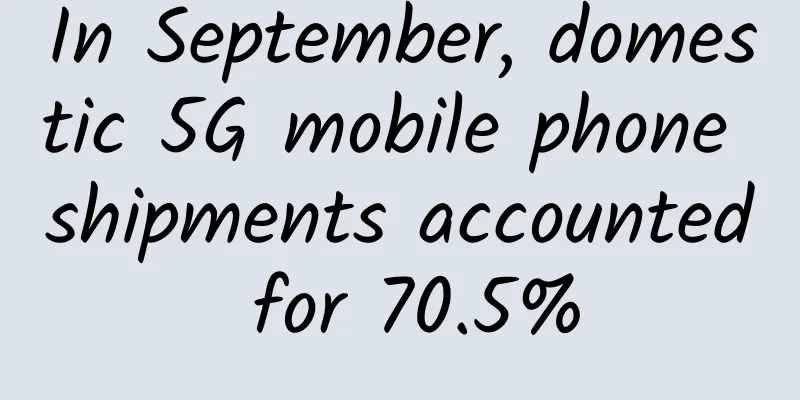Alipay's competition with WeChat in China is rapidly cooling down, but its overseas battle is getting more intense. What are the two Ma's fighting over?

|
Usage habits may eventually become an important factor in determining market success or failure. In the case that NFC has not become mainstream, when consumers raise their phones to pay, will they directly click on the payment button on WeChat, which they are "staring at" every minute, or will they first find Alipay among the densely packed apps on the screen and then click the payment button?
"Boss, the payment has been made. Please check it." Dongdong Notes bought a breakfast at the newsstand at the subway entrance and put the phone that had just scanned the merchant's QR code into his pocket. "WeChat or Alipay?" This is the most common question heard today in breakfast stalls, vegetable markets, chain supermarkets, express hotels and even five-star hotels in many cities. Many consumers have become accustomed to using more convenient mobile payments. It is precisely because of the thousands of ordinary daily usage needs such as Dongdong Notes that mobile payment has been recognized by a large number of users. A drop of water makes a river, and countless users and application scenarios have made the transaction volume of this "new four great inventions" grow by more than 30 times in the past four years - from 1.3 trillion to 35.33 trillion. Moreover, according to the observation and forecast of Analysys Consulting, the domestic mobile payment market will continue to maintain rapid growth this year and the market size will further increase. Behind the ever-growing numbers, one point that needs special attention is that the domestic mobile payment field has become a two-pole war represented by Alipay and WeChat (Tenpay) (the two together account for more than 90% of the total market). However, in the process of constant competition, the market share of mobile payment has gradually undergone a small but highly concerned change in the industry, that is, Alipay's dominant position is being shaken, and its market share has gradually been eroded from more than 60% to a little over 50%. According to the latest data released by the WeChat payment team, as of September 2017, the number of monthly offline payments by WeChat payment increased by 280% compared with last year, and the number of monthly social payments increased by 23% compared with last year. It is not difficult to see that WeChat Pay's offline payment growth is rapid, and the gap with Alipay is further narrowing. Industry insiders generally believe that the competition between Alipay and WeChat Pay will become increasingly stalemate. At the same time, in addition to the continued competition in the domestic market, they are also stepping up their layout in the overseas battlefield, and the bipolar war is intensifying. From 80% to 50% Why has Alipay's market share dropped sharply?
QR codes and red envelopes can be said to be one of the greatest inventions in recent years, and they have made mobile payments popular among people from 80-year-olds to children. As for POS machines, they were revolutionized by mobile payments before they could become popular. The market competition between Alipay and Tenpay takes place in the usage habits of different users. As Tenpay and Alipay gradually penetrate into consumers, the market shares of both parties have changed. Dongdong Notes found through observing the "Mobile Payment Market Transaction Scale Report" of Analysys Consulting that Alipay's share dropped from 54.1% in the fourth quarter of last year to 53.7% in the second quarter of this year; Tenpay's share rose from 37.02% in the fourth quarter of last year to 39.12% in the second quarter of this year. You know, in the field of mobile payment where the first-mover advantage is obvious, it is very difficult for the market share to rise or fall. Although Tenpay has only slightly increased and Alipay has only slightly decreased, it is a change that cannot be ignored for both of them. Behind the digital changes, there is actually a change in the way of competing for users. Tencent has been making every effort to expand the payment scenarios of Tenpay. Not long ago, 12306 also launched the WeChat payment function. However, the "Double Eleven" battle, which was still underway, also triggered the largest mobile payment competition of the year. After a day of shopping, on November 12, many consumers began to post their Double Eleven bills on their WeChat Moments. "Dongcheng District ranked 6th in spending power", "Chaoyang District ranked 1st in spending power"... Behind these bills, the happiest company was Alipay. On the 11th alone, the amount of payments completed through Alipay reached 168.2 billion (not excluding transactions that were not completed or refunded later). Although Taobao is the main force on Double 11, the sales of JD.com and other platforms should not be underestimated. Strictly speaking, this year is the second year that JD.com has participated in Double 11, and its transaction volume has reached 127.1 billion, while Taobao took 9 years to reach 168.2 billion. WeChat Pay is more used behind JD.com's transaction volume. Although its scale is not as large as Alipay, Tenpay is not only JD.com's payment channel. This year, "Honor of Kings" also held promotional activities on Double 11, and the transaction volume is also considerable. An industry analyst told Dongdong Notes: "E-commerce will become the most important factor influencing the change in mobile payment market share in the fourth quarter of this year. Among them, Alipay, as the only payment channel of Alibaba's e-commerce platform, will also achieve certain growth." It is important to emphasize that although the overall pattern of mobile payment has not changed, Alipay's leading advantage is gradually shrinking. Just three years ago, Alipay accounted for nearly 80% of domestic mobile payment, but now it is only about 50%. More importantly, the "effect" of the shopping spree in the fourth quarter of each year on Alipay is not long-lasting. In the wrestling with Tenpay, more powerful methods must be used. What is the ultimate battle for as the overseas wars rage on? Online shopping has become a magical force that promotes the popularization of mobile payment in China. After the domestic mobile payment transformation and upgrading has been gradually completed, mobile payment platforms and many Chinese consumers have also taken domestic payment methods abroad. It can be seen that the bipolar war of mobile payment is spreading overseas. In fact, as the domestic mobile payment landscape is relatively stable, the market space to be explored is becoming smaller and smaller. At this time, it is inevitable to find another way. It can be seen that third-party mobile payment platforms represented by Alipay and Tenpay are actively expanding overseas markets. Relevant data shows that Alipay has covered 200,000 merchants in more than 30 countries and regions around the world; WeChat Pay has landed in more than 13 countries and regions, covering more than 130,000 overseas merchants around the world. It is worth mentioning that mobile payments after going overseas support many foreign currencies, among which WeChat Pay supports 12 foreign currencies. In addition, overseas shopping by Chinese consumers has become another incentive for domestic mobile payments to go global. In recent years, traveling abroad has become a new choice for some domestic consumers to relax and vacation. According to statistics from the National Tourism Administration, during the Golden Week alone this year, domestic outbound tourism exceeded 6 million person-times, ranking first in the world for four consecutive years. From the data, we can see that outbound tourism is a rapidly growing group, and Chinese tourists going abroad have also driven the Chinese people's overseas shopping tourism consumption. The duty-free shops in Jeju Island, South Korea, have been connected to Alipay and WeChat Pay early because of the large number of Chinese tourists every year. Recently, the French department store "Galeries Lafayette" also announced that it will gradually promote WeChat Pay in its domestic branches. The dual promotion of overseas merchants and mobile payment platforms ensures that domestic consumers can use domestic mobile payment methods wherever they go. This is a business expansion for payment platforms and a convenience for domestic consumers. Xue Hongyan, director of the Internet Finance Center of Suning Financial Research Institute, summarized the two main reasons for the overseas expansion of mobile payment during his communication with Dongdong Notes: "Payment is a part of consumption. Consumption goes overseas first, and payment goes overseas only then has a foundation. This should be considered an internal factor. In addition, the domestic mobile payment market structure is initially determined, and the growth space is limited. The layout of overseas markets has the significance of a strategic breakthrough, which should be considered an external factor." It can be said that the broad prospects of mobile payment in overseas markets have prompted the competition for mobile payment to escalate again. However, some industry insiders have also issued a warning to payment platforms, saying that the more intense the competition is, the more they should avoid blindness. The countries and regions selected for opening must have matching mobile payment levels, otherwise the number of openings alone will be of no use to the platform. Ecological closed loop is an enhancer of competition in all industries
It should be emphasized that while Alipay and Tenpay are secretly competing with each other at home and abroad, they are also actively deploying mobile payment businesses in other countries and regions through investment. Currently, Ant Financial has partnered with Indonesian media giant Emtek to launch digital payment services in the country; Tencent has led an investment in Indian instant messaging app Hike and launched a mobile payment function on its platform. Domestic mobile payment giants have already spread the war from China to Southeast Asia. There are several reasons why the competition in domestic third-party mobile payment is so fierce: First, payment is a big business. The first thing that payment can obtain is user traffic, which forms a natural resource for financial business, and the financial business derived from this also has a certain user base. "Payment is the infrastructure of all forms of the financial industry, and it undertakes the functions of account establishment and traffic entry. To some extent, the competition in payment is the front station of the competition in all forms of Internet finance." Xue Hongyan told Dongdong Notes. For example, after Alipay was launched in 2004, it experienced explosive growth in a very short period of time through convenient payment and the only transaction channel for its own e-commerce, and quickly established its market position in domestic mobile payments. With the increase in the number of registered users of Alipay and the enhancement of user stickiness, related financial services such as Yu'ebao have also become a new way for domestic consumers to manage their finances. In the early days of its launch, it successfully attracted hundreds of millions of users with an annualized rate higher than that of banks. Of course, in the past two years, Yu'ebao's annualized rate has become less and less advantageous than other financial management platforms, and there has also been a loss of users. In the face of the practice of mobile payment platforms going overseas, Xue Hongyan further emphasized: "The overseas expansion of payment is also the first stop for the overseas expansion of the entire Internet finance industry. On the surface, it is the overseas expansion of payment, but in fact it lays the groundwork for the overall overseas expansion of Internet finance." Judging from the current overseas payment expansion and investment layout of Ant Financial and Tencent, their financial overseas expansion plans are about to be revealed. Second, payment, from traffic to scenarios, has enhanced the business ecology and capacity building of platforms and enterprises. The above-mentioned industry insider told Dongdong Notes that mobile payment reflects the capacity building problem of enterprises to a certain extent. Since the digital transformation of the Internet is the transformation of every enterprise, it needs to be constantly updated in business models and payment methods. Mobile payment is a way to implement business and a channel to obtain revenue, which directly affects the platform's monetization ability and business ecology. For example, WeChat Pay’s mobile payment scenarios have been extended to more than 70 million (incomplete statistics) offline merchants in China, and the rise of WeChat Pay is having an increasing impact on Tencent’s overall revenue. According to Tencent’s second quarter financial report this year, the revenue generated by Tencent’s digital payment business is three times that of the same period last year, accounting for 17% of Tencent’s total revenue, while it only accounted for 10% in the same period last year. According to Tencent, the performance of WeChat Pay has contributed greatly to this. In addition, the rapid growth of WeChat Pay has a certain benefit effect on Tencent's other businesses such as games, travel, O2O, etc., and these businesses are also conducive to the further penetration of WeChat Pay among users. In other words, a closed-loop influence is being formed between WeChat Pay and Tencent's various businesses. Not only that, Tencent President Martin Lau also stressed that Tencent will continue to invest in the payment business. It can be seen that in the domestic mobile payment market, the bipolar war between Tenpay and Alipay will continue for a long time in the future. It can be said that mobile payment is no longer just about payment, and the significance of competing for a larger share of the payment market goes far beyond payment itself. |
<<: Some experiences and summaries of hybrid APP cross-platform development in 2017-2018
>>: Android Bolts - Easier thread scheduling and task management
Recommend
How to tap into demand? 3 methods to help you discover your needs!
Many product managers are particularly distressed...
Unsolved mystery! This ancient Chinese city 4,000 years ago was built with jade walls?
On the loess ridge of Mao (mǎo) on the north bank...
How to position a short video account?
Nowadays, many people regard shooting short video...
There are many creatures that can be revived after being frozen for tens of thousands of years...| Expo Daily
A creature that can be resurrected after being fr...
How to quickly remove oil stains from mobile phone screens using invoices
The biggest advantage of Android phones is that th...
How to build a user portrait system? Just read this one article!
Only by deeply understanding the characteristics ...
A green alternative to plastic → breathable and waterproof paper "armor"!
Imagine if you could put a soft and waterproof &q...
Why are more and more strong typhoons coming earlier?
A strong typhoon is a tropical cyclone with great...
The rise of mobile payment apps in Europe and the United States: When “alternative payments” are no longer alternative
Speaking of "alternative payments", bef...
Zhihu operation full set of detailed operation guide
The full text is about 5,000 words, and it takes ...
Resource station profiteering, long-term and stable money-making project
We all know that traffic is the essence of all bu...
Is edible glue really related to "glue"?
Image source: Qianku.com In an age when people ar...
Zhihu promotion and operation skills guide!
I started operating Zhihu on April 1st and operat...
CNNIC: As of June 2023, the number of Chinese netizens will reach 1.079 billion and the Internet penetration rate will reach 76.4%
China Internet Network Information Center (CNNIC)...
August 2024 "Science" Rumors List: Children's medication, half the adult dose? Can choosing good sports equipment improve physical test scores?
1. Can “back sunning” cure all diseases only if d...









